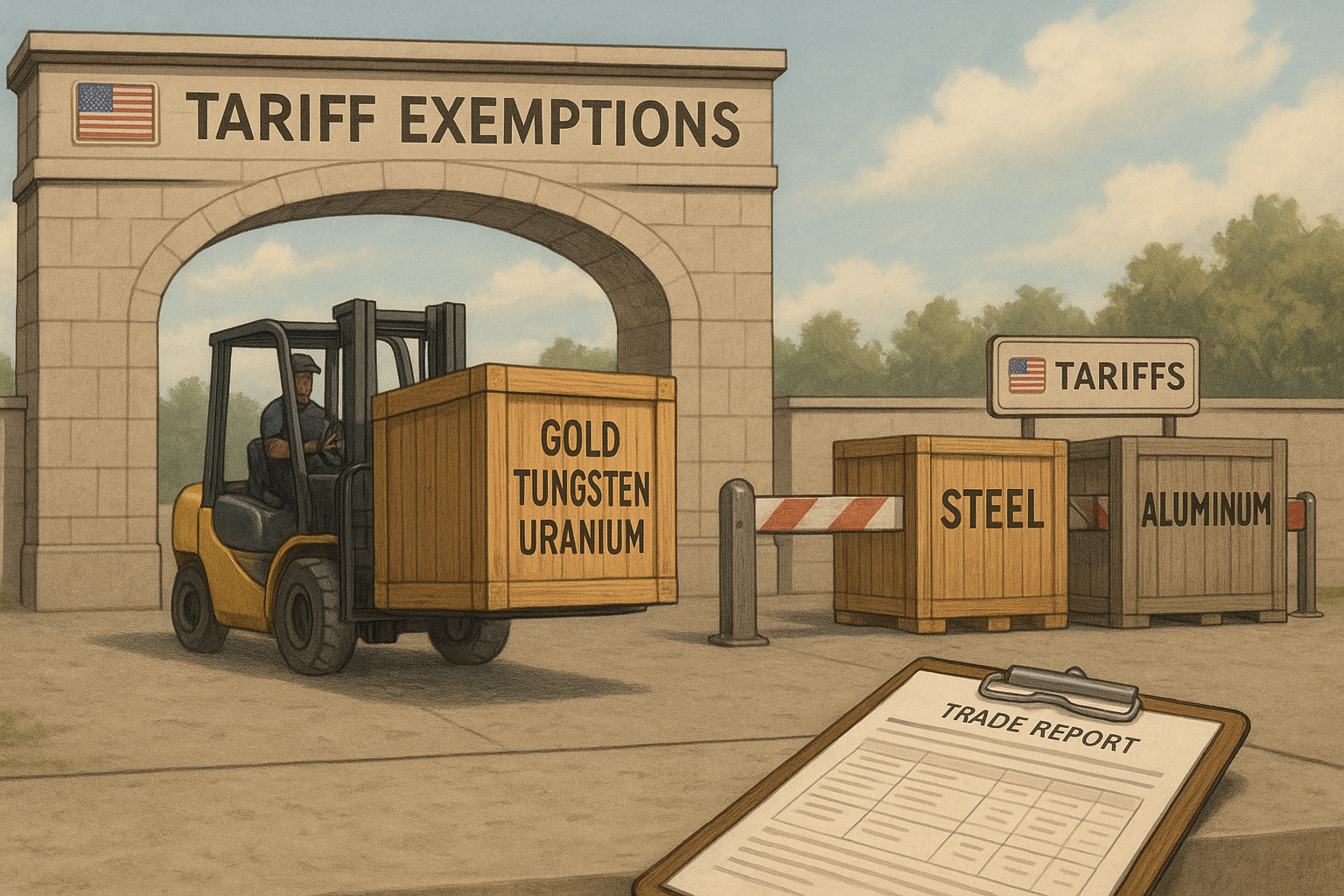Former President Trump has carved out a curious set of exceptions to his otherwise sweeping tariff policies, sparing gold, tungsten, uranium and several other metals from the trade war battleground. The move has left commodity traders scratching their heads and industry insiders reading between the lines.
I've spent enough time covering economic policy to recognize when something doesn't quite add up. And this one's got political fingerprints all over it.
Look at the exempted materials closely and you'll notice something interesting—they're all critical components for aerospace, tech manufacturing, and pharmaceutical production. Three industries that, by sheer coincidence I'm sure, employ thousands of workers in electoral battleground states. Funny how that works.
The official explanation centers on protecting "strategic industries vital to American security and prosperity." A noble sentiment. But since when has Trump's economic nationalism come with asterisks and footnotes?
What's actually happening here represents the collision between campaign rhetoric and economic reality. The administration's public stance has always featured two parallel narratives—protecting American workers through tough trade policies while simultaneously promising economic growth that, well, depends on the very global supply chains those policies disrupt.
Tungsten offers a perfect case study. It's not exactly dinner table conversation in most American homes, but with the highest melting point of any metal (a scorching 6,192°F), it's irreplaceable in everything from electronics to missile guidance systems. China produces over 80% of the world supply.
"We were preparing contingency plans for alternative sourcing," one defense contractor procurement officer told me on condition of anonymity, "but honestly, there aren't always alternatives. Some materials just come from where they come from."
The uranium exemption tells a similar tale. With the U.S. importing roughly 90% of its uranium needs—largely from allies like Canada, but also from Kazakhstan—nuclear energy's quiet comeback would face immediate headwinds under a strict tariff regime.
And gold? That exemption speaks volumes. Beyond its industrial applications, gold represents something psychologically significant to Americans—a safe haven asset in uncertain times. Even the most devoted economic nationalist doesn't want to be blamed for restricting access to financial security when inflation fears loom.
The markets barely flinched at the announcement. Sophisticated traders had already placed their bets on pragmatism winning out over ideological purity. They understood what some political observers missed: absolute economic nationalism is functionally impossible without accepting massive self-inflicted damage.
This inherent contradiction has created strange bedfellows. I've watched manufacturing executives who publicly applaud "tough on China" rhetoric privately lobby for exemptions for their critical supply components. It's not hypocrisy so much as survival instinct.
The most revealing aspect of these exemptions? They tacitly acknowledge the very global interdependence that economic nationalism seeks to overcome. By creating carve-outs, the administration essentially admits some connections simply can't be severed without significant domestic consequences.
A senior aerospace executive (speaking off-record because who needs that headache?) put it bluntly: "You can't build American planes with American workers using only American materials. That world doesn't exist anymore."
Is this a strategic recalibration or just political calculation? Probably both.
Having covered trade policy through multiple administrations, I've noticed a pattern. Economic nationalism always follows the same trajectory: bold proclamations, followed by industry pushback, followed by quiet exemptions that never receive the same publicity as the original tough talk.
What makes these particular exemptions noteworthy isn't just what they include, but what they reveal—the practical limits of economic nationalism in a globally integrated economy.
For the industries receiving these carve-outs, it's breathing room in an otherwise constricting trade environment. For everyone else? A masterclass in the gap between economic rhetoric and implementation reality.
The exemptions create a hierarchy of metals in the trade war chess game. Some pieces are expendable pawns, while others—the ones that might determine who controls the board—receive special protection.
In the end, this policy tweak demonstrates something every trade warrior eventually discovers: Economic absolutism eventually crashes into the messy complexity of reality. These exemptions are simply where that collision becomes visible.




